Growing up in a family with siblings who have special needs can be both rewarding and incredibly difficult. Sometimes, being the “healthy” child comes with a silent burden, as one is expected to be strong, supportive, and understanding, while their own feelings are often overlooked.
Today’ Original Poster (OP) spent most of her life living in the shadows of her brothers, who had autism and epilepsy, respectively. Never really considered or looked after, she mapped out her dreams for the future, until she was told she was expected to include her brothers in it.
More info: Reddit
Some individuals grow up in the shadow of their family, their needs and feelings often overlooked while attention is focused on siblings facing challenges

Image credits: syda_productions / Freepik (not the actual photo)
The author grew up as the middle child, a year and nine months younger than an older brother later diagnosed with autism
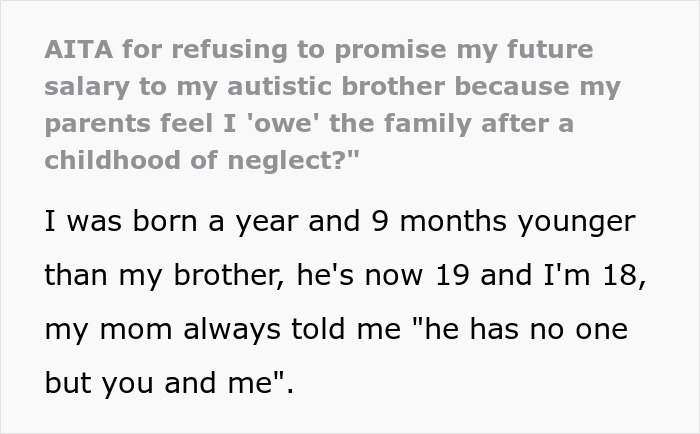

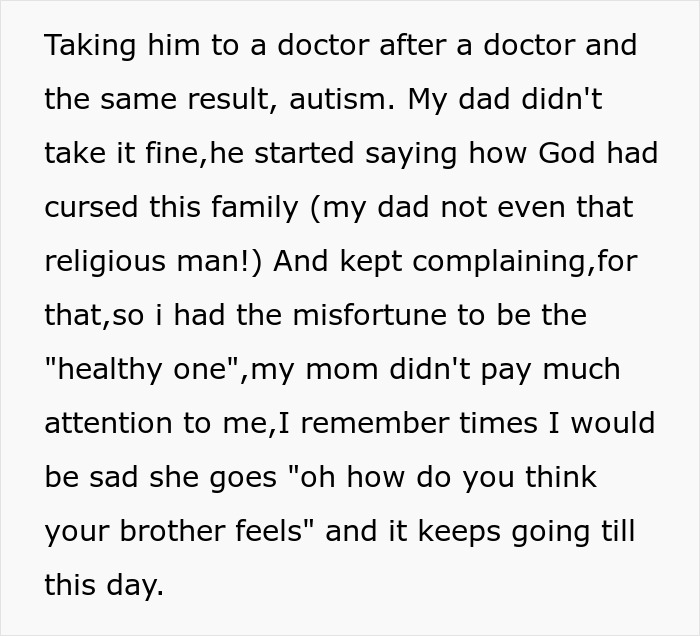
Image credits: Even_Committee8552
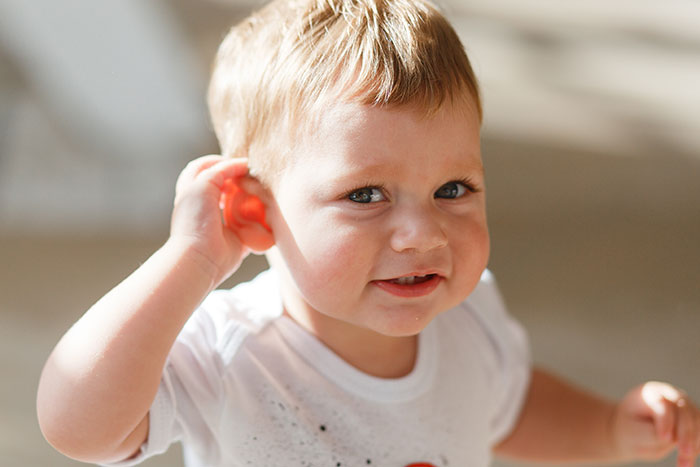
Image credits: freepic.diller / Freepik (not the actual photo)
As the “healthy” child, she received little attention or emotional support, often being told to consider her brother’s feelings instead of her own
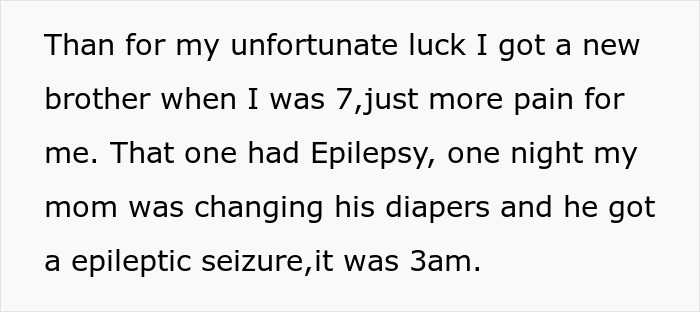
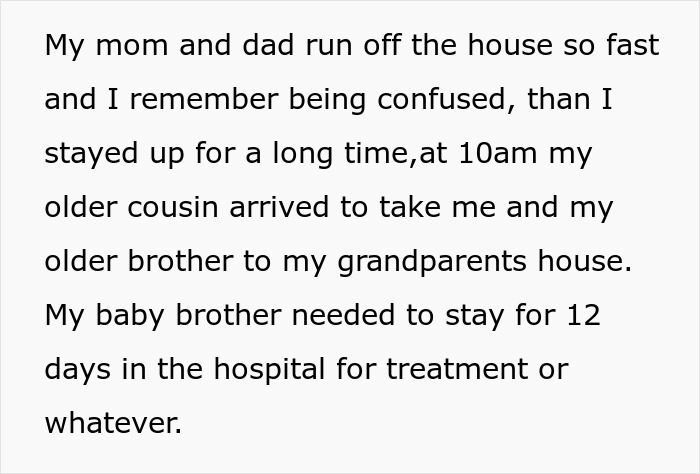
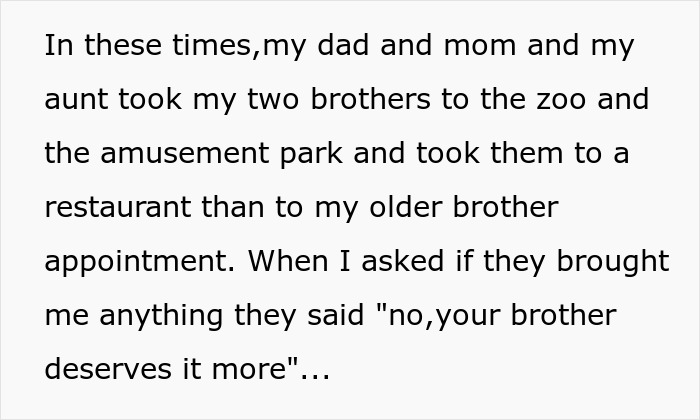
Image credits: Even_Committee8552

Image credits: yanalya / Freepik (not the actual photo)
She eventually got a new baby brother who was born with epilepsy, further deepening the parents’ focus on the sick children and leaving her feeling neglected and forgotten
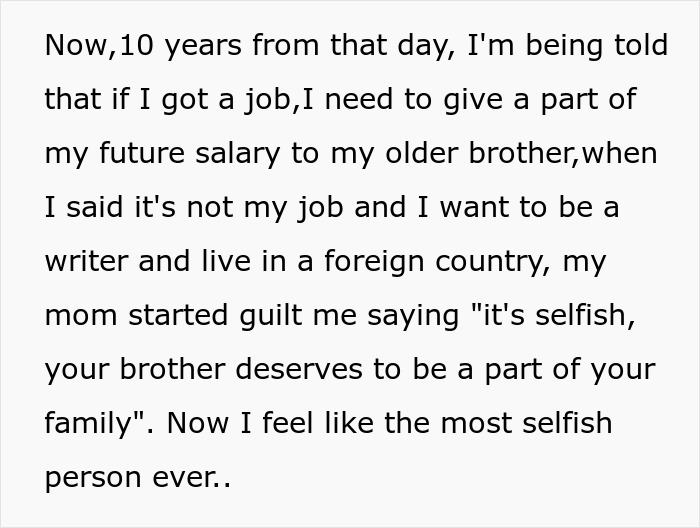
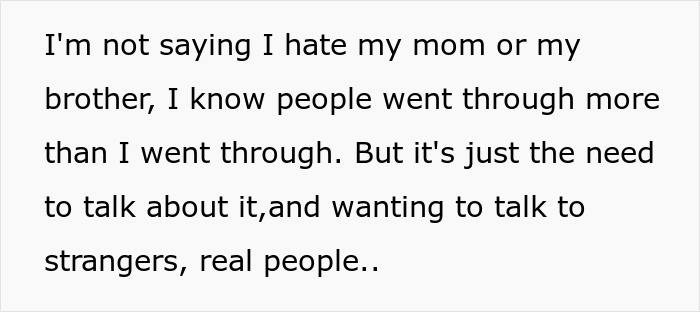

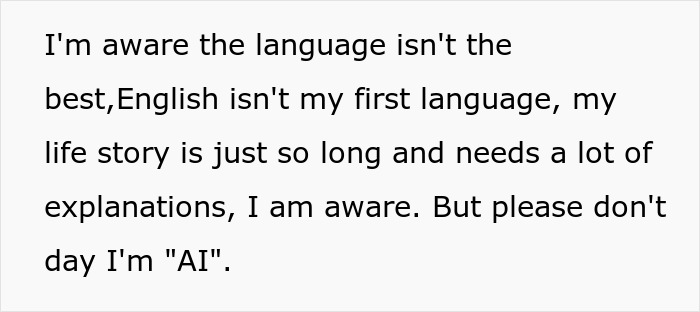
Image credits: Even_Committee8552
Years later, when told to share her future earnings with her autistic brother, she resisted, feeling guilty yet determined to pursue independence and a writing career abroad
When the OP’s older brother was 8, he was diagnosed with autism. She noted that her parents went through every possible stage of denial until the truth was unavoidable. She was quietly labeled the “normal” child, expected to be strong, supportive, and always understanding, without her feelings really being considered.
Just when she thought life might settle down, a new brother was born, and he had epilepsy. The OP then recalled a night when the younger brother had a seizure at 3 a.m. and her parents ran off to deal with it, leaving her in total confusion until a cousin arrived.
The brother ended up staying in the hospital for twelve days, during which the parents focused on outings and appointments for him and the older brother, while she got nothing. Whenever they returned from an outing, the OP would ask if they had brought her anything, only to be told that her “brothers deserved it more.”
It’s been ten years now, and the OP was told that she was expected to give a portion of her future salary to her older brother. When she expressed her wish to pursue writing abroad instead, her mother insisted that her brother deserved to be part of her family. Naturally, this left her feeling like she was the bad guy.

Image credits: prostock-studio / Freepik (not the actual photo)
Sibling relationships in families with special needs are layered and emotionally complex. Covey explains that while growing up alongside a sibling with a disability can nurture positive traits like empathy, patience, and a strong sense of advocacy, it can also bring difficult emotions.
Quirky Kid builds on this by highlighting the difficulties, including the fact that when parents devote most of their attention to the child requiring extra care, other siblings may feel invisible or resentful. Over time, many of these siblings may even have to take on informal caregiving roles, often feeling burdened by expectations to be mature, responsible, or “the strong one” within the family.
According to Think Psychologists, siblings of individuals with special needs are often expected to assume caregiving or financial responsibilities due to family values, cultural norms, and social expectations. Many parents see this as a natural part of family duty, believing siblings should support each other throughout life, especially when parents can no longer provide care themselves.
However, these expectations can place heavy emotional burdens on typically developing siblings, leading to guilt, resentment, or a sense of lost autonomy. They also emphasize the importance of open family discussions and future planning to ensure siblings feel supported and have a genuine choice in their caregiving roles.
Netizens affirmed that the OP is not responsible for her brother’s care or her parents’ expectations. They emphasized that the neglect she experienced as the “healthy sibling” makes it unfair for her parents to demand sacrifices from her. They advised prioritizing her own life and future, even suggesting moving out or limiting contact if necessary.
What do you think about this situation? Do you think it’s fair for parents to expect adult children to financially support siblings with special needs? We would love to know your thoughts!
Netizens advised the author to prioritize her life and future, suggesting moving out or limiting contact if necessary
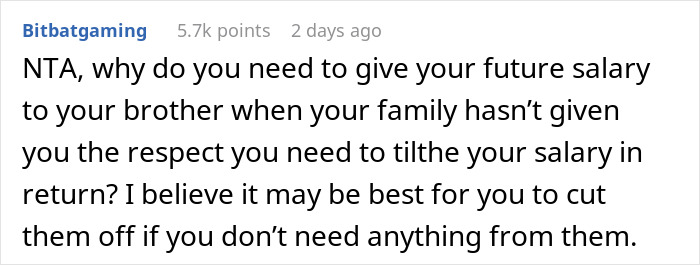
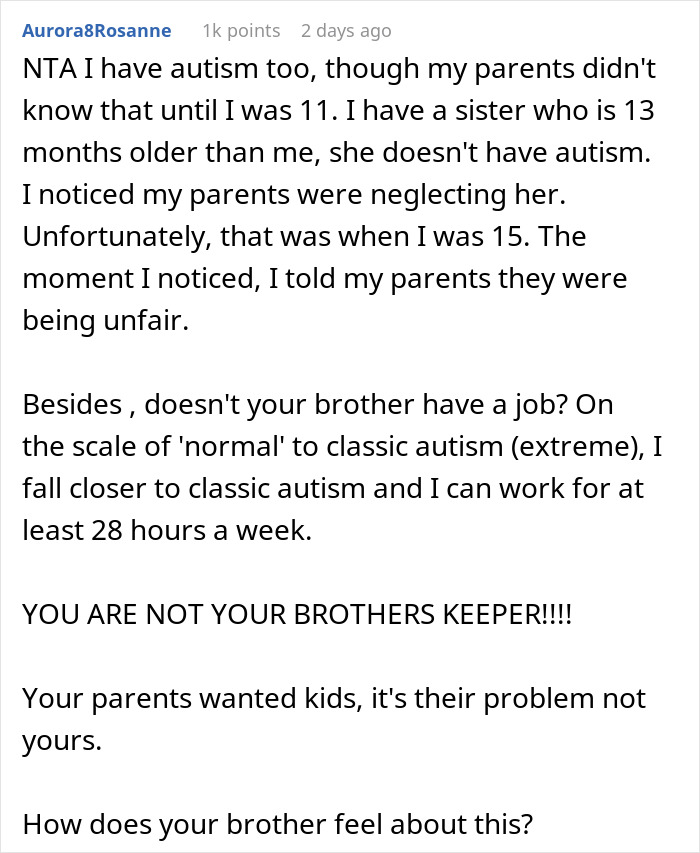
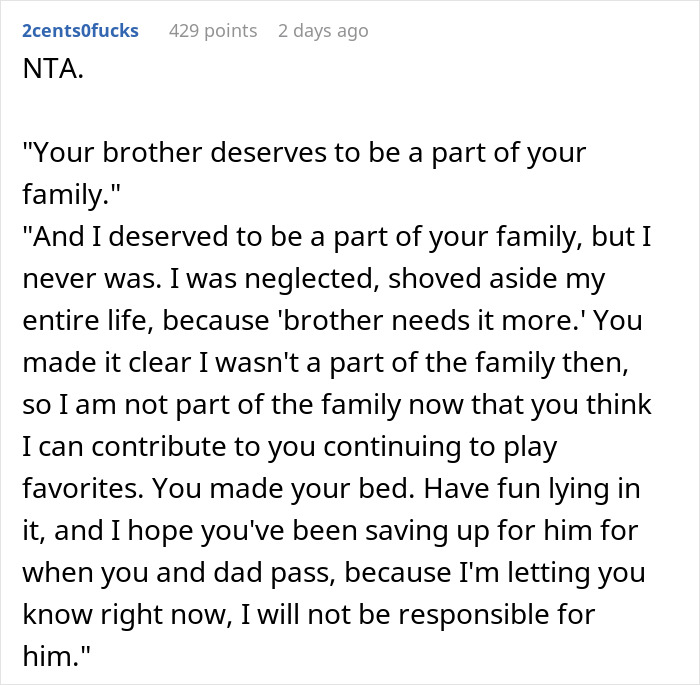
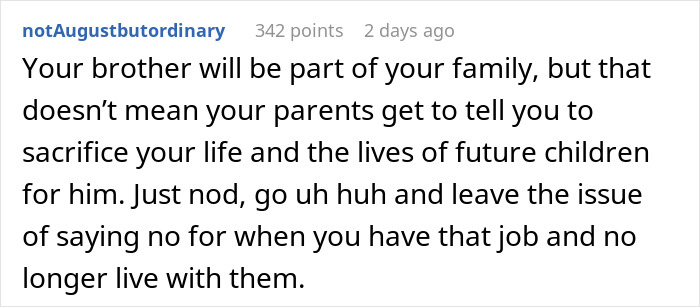

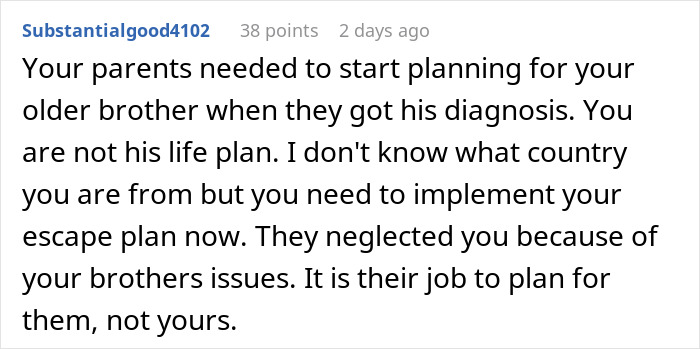

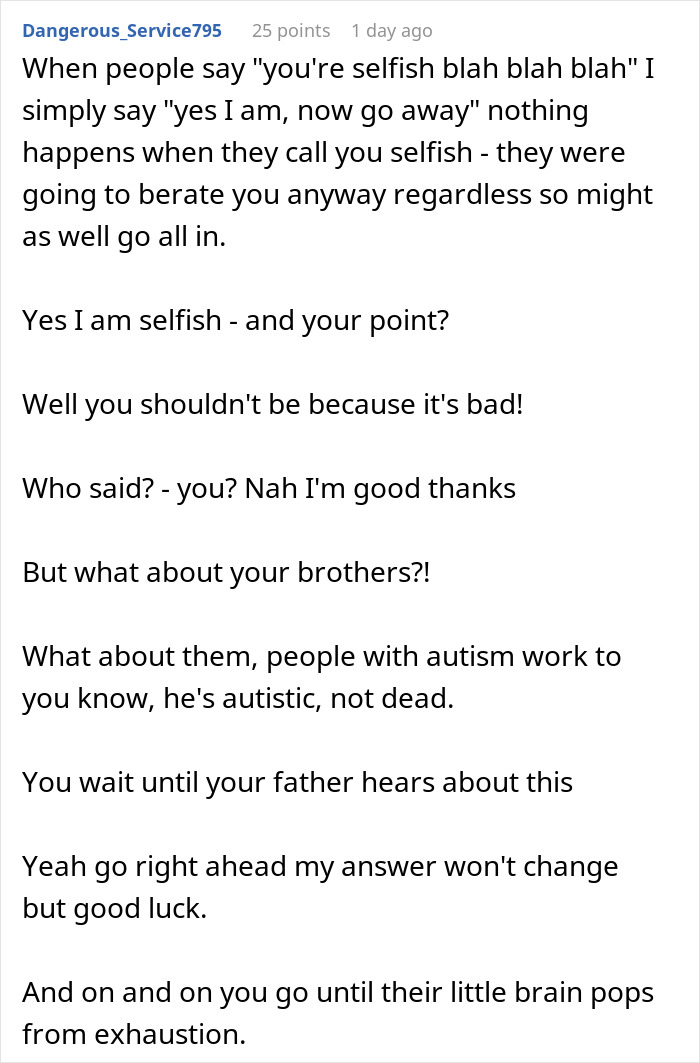
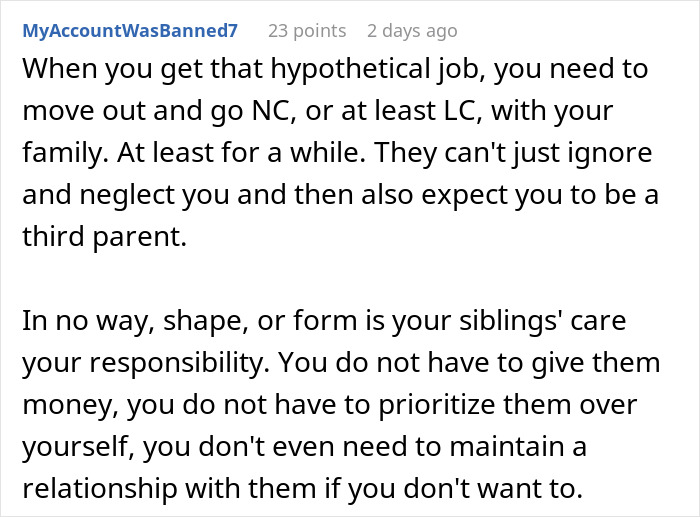
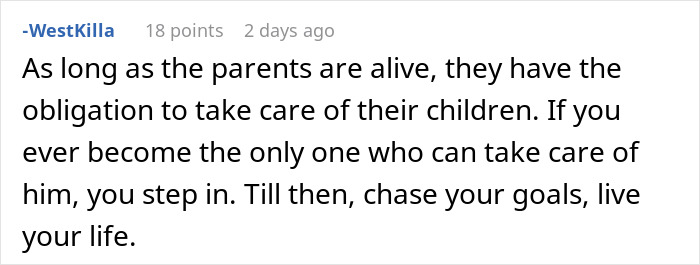

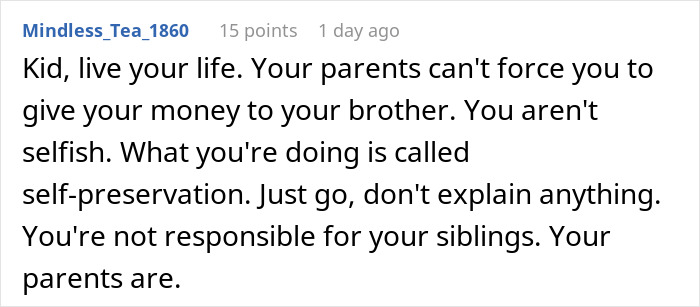
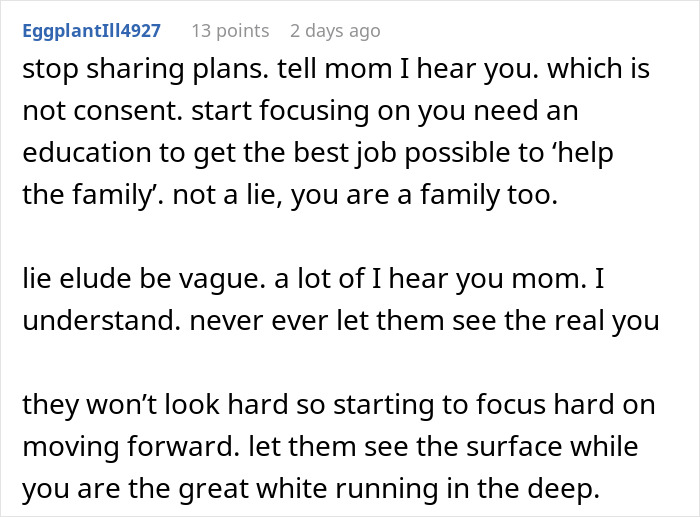
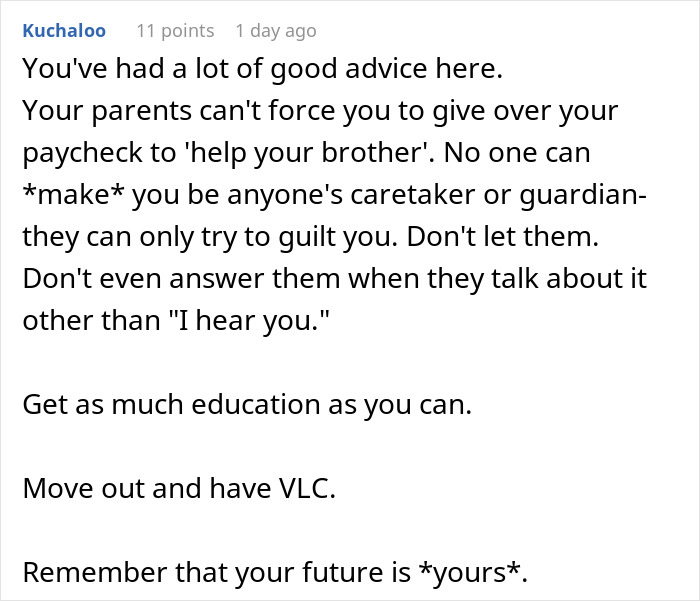
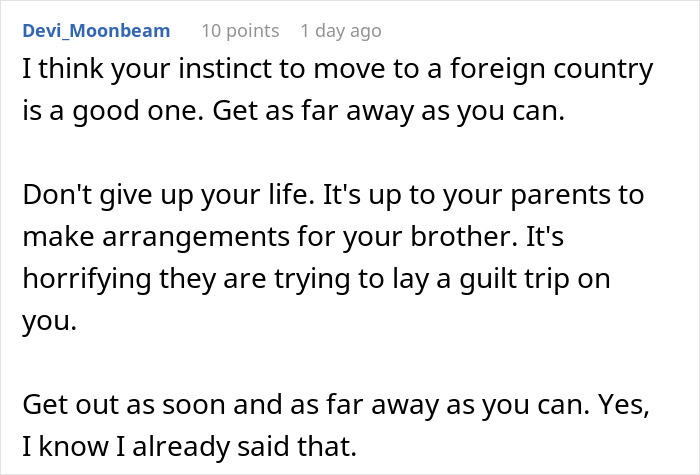
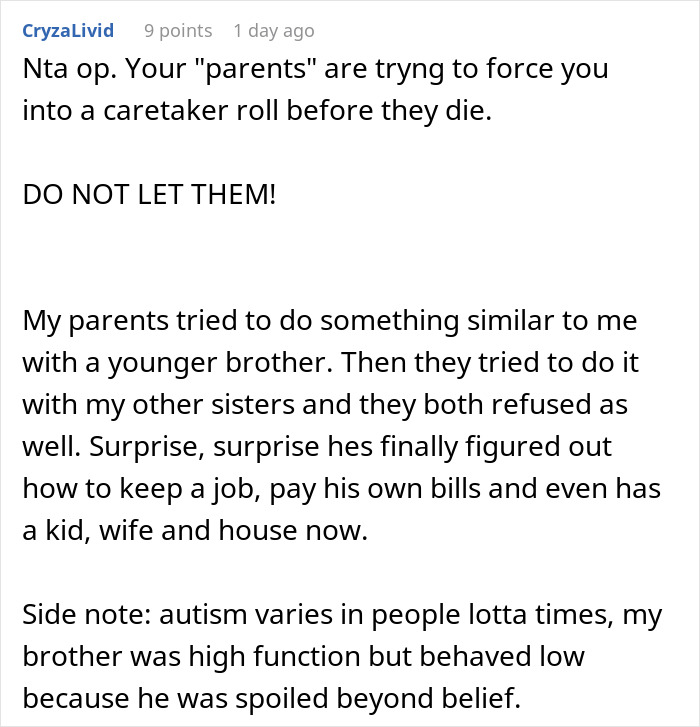
 Follow Us
Follow Us





